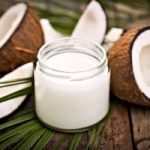The Pros and Cons of Enteric Coated Fish Oil

Enteric coatings on soft gels
What’s an enteric coated fish oil and is it the right choice for you?
Fish oils are an excellent source of the omega 3 fatty acids docosahexaenoic acid (DHA) and eicosapentaenoic acid (EPA).
These fatty acids have been shown to help protect you from a number of diseases and can reduce your risk for heart disease.
Studies show that enteric coatings help delay digestion of the fish oil to improve absorption and reduce the risk for fishy burps or after-taste.
Advantages of Enteric Coated Fish Oils
The 2 main reasons you would choose to use an enteric coated fish oil are to increase absorption and reduce fish oil side effects.
1. Enteric Coatings may Increase Absorption of the Omega 3 Fatty Acids:

The majority of digestion and absorption of nutrients occurs in your small intestine.
Pharmaceutical companies have known for years that special coatings on pills can delay digestion in the stomach so the drug can be effectively absorbed in the small intestine.
Depending on the type of enteric coating used, you can control how the nutrients will be absorbed at different points along the digestive system.
Not all enteric coatings are the same and some can dissolve at different rates; this will affect how well you absorb and digest the active ingredients.
If you have a health condition that may affect your digestion (such as Crohn’s disease), you may want to use an enteric coatings to improve absorption.
2. Enteric Coatings May Reduce Side Effects from Fish Oils:
If you’ve ever had fish oils and experienced side effects, such as fish burps or gas, you may want to try using an enteric coated supplement.
To properly digest food, your body needs to break down it down with digestive enzymes; the same thing applies to fish oil.
These special coatings can slow down digestion in the gut and allow the fish oil capsule to break down in the stomach where it can be digested more efficiently and reduce your risk for gas and burps.
Disadvantages of Enteric-Coated Fish Oils
While these products can enhance absorption and lower the risk for side effects, some consumers may not be able to use them for the following reasons:
1.May only be available in lower dosages
– Higher potency enteric-coated soft gels may not be available. However, the improved absorption from the enteric-coating may offset the smaller dosage.
2. Problems swallowing soft gel capsules
– People who have difficulties swallowing may not be able to use soft gel capsules and will have to resort to liquid fish oils.
3. Possible Allergic Reaction to Enteric-Coating Ingredients
Consumers with sensitive stomachs or history of allergies may experience negative reactions to some ingredients used to make the enteric-coatings.
What are Enteric Coatings Made Of?

Enteric coated and Non-coated soft gels
These coatings can be made from synthetic or natural compounds such as waxes, shellacs, plastics, plant fiber or fatty acids.
The enteric coating will usually have a hazy or opaque solid color on the surface. Uncoated products will have a clear coat.
a) Synthetic Compounds
– are comprised of pH sensitive polymers.
– during the manufacturing process the capsules are spray painted with a thin layer. This coating allows the pill to remain intact in the acidic environment of your stomach.
– the coating then dissolves in the alkaline environment of your small intestine (above pH 5.5) where maximum absorption of nutrients occurs.
– examples of synthetic enteric coatings are Methacrylic Acid Copolymer (MAC) and Polyvinyl acetate phthalate (PVAP).
b) Natural Coatings
– if you see the words ‘cellulose’ or ‘ alginate’ in the ingredient label, it means your soft gel coating is using a plant-based ingredient.
– natural coatings can be made from plant-sourced ingredients such as tree fibers and algae.
– these coatings may cost more due to higher manufacturing and processing costs.
Whether you get synthetic or natural coatings, the actual ingredients and application process may affect how well they adhere to the soft gel and whether or not it will chip or crack.
Should You Use Enteric Coated Fish Oils?
Medical studies that used enteric coated fish oil pills show that they may be more effective that regular non-coated supplements….
A study published in the New England Journal of Medicine found that 72% of Crohn’s disease patients taking 9 grams of EPA and DHA in an enteric-coated soft gel, once a day for one year, did not experience any relapse in their disease with 60% of the patients were symptom-free. Other patients in the same study that took a placebo experienced 2.5 times more relapses and only 26% remained symptom-free.
Conclusions:
If you experience digestion issues, fishy breath or burps from fish oils, you may want to try using an enteric-coating. Some consumers choose these types of products to enhance absorption, even if they don’t suffer from side effects.
Examples of Enteric Coated Fish Oil Products:
Due to the growing popularity of fish oil supplements, you can find a number of these products from many on-line retailers and nutritional supplement stores.
Spring Valley Fish Oil is a pharmaceutical-grade product available in an enteric coated soft gel. A bottle of 60 capsules containing 1000 mg soft gels can range from $5 – 10.
Kirkland Signature Coated Fish Oil has garnered many on-line positive reviews. Each bottle provides 180 soft gels which provides 410 mg. EPA and 274 mg. DHA per enteric coated soft gel. At press time, the Suggested Retail Price for a bottle of 180 soft gels is $21.84 US. The enteric coatings may contain Methacrylic Acid Copolymer, Hydroxyproply Methylcellulose Phthalate, Ethylcellulose, Sodium Alginate, Triacetin, Stearic Acid and Polyethylene Glycol.

Renew Life Enteric Fish Oil
Norwegian Gold Super Critical Omega is an enteric coated fish oil made with natural, non-synthetic ingredients.
One soft gel provides 1025 mg. of omega 3 fatty acids from cold water fish oil made from anchovy and sardines packaged in 100% fish-based soft gels.
The ingredient label claims these soft gels are made from fish gelatin, glycerin, beeswax, lecithin (from sunflower seed oil), natural carob color, caramel powder and an aqueous enteric coating.





